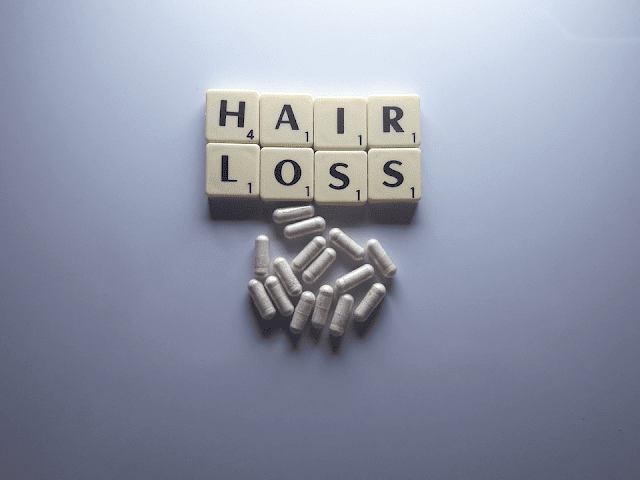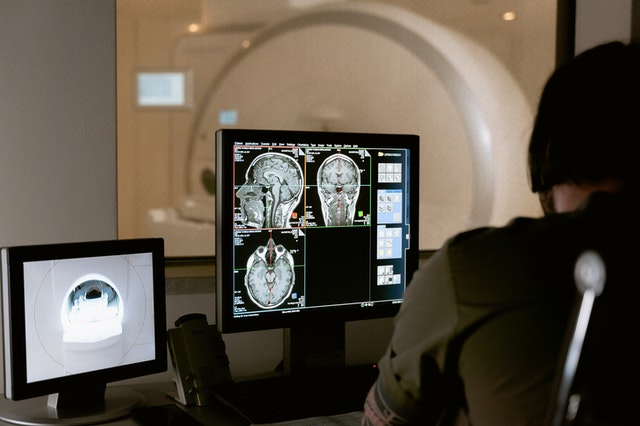 |
| Hair loss during pregnancy |
Some Ways To Handle Hair Loss In Pregnancy.
Women notice several changes to their bodies during pregnancy. Some will lose hair, and others will notice that their hair becomes stronger and shinier. This is often caused by higher levels of estrogen, which stimulate hair follicles.
Other women experience hair loss during pregnancy, which manifests in their hair thinning and falling out more. This problem can continue postpartum, but you can find remedies for hair loss after pregnancy.
Finding the right shampoo for soft water and maintaining a healthy diet are some of the remedies one can embrace to counter hair loss during pregnancy. Sometimes, requiring treatment for hair loss in pregnancy could point to an underlying problem, so consult with your doctor to understand what’s happening. For some women, losing hair during pregnancy may be hormone- or stress-related.
All hair grows through a lifecycle, so about 90% of the hair remains in the growth process and 10% in a resting phase
. The hair in the resting phase falls out about every two months to make room for new hair. So, regular hair loss is normal, but it should not be excessive during pregnancy. If you understand what can cause hair loss in pregnancy, you will be more prepared to prevent it. Here are remedies you can use to deal with hair loss.
Causes of Hair Loss in Pregnancy
 |
| Hair and Comb |
To know how to reduce hair loss in pregnancy, you should first explore some of the causes.
While estrogen slows the natural cycle of hair shedding, in some rare occurrences, one might lose hair because of these triggers:
· Hormonal Shift –A hair loss hormonal pregnancy shift can be a trigger. Some women experience hair shedding due to shock and stress. This is called telogen effluvium. In the first trimester, the body may be stressed because the balance of hormones shifts to support the growing baby. Also, stress may contribute to telogen or make more hair on the head switch to the resting phase. This means instead of losing the normal 100 hairs a day, you would lose 300 hairs.
· Health Issues – While looking to reduce hair loss in pregnancy, you also need to consider underlying health issues that might help you find the right remedy. Health problems may cause telogen effluvium, triggering dramatic shedding, especially if it’s linked to a lack of essential vitamins.
· Thyroid Problems –Disorders like hypothyroidism (too little thyroid hormone) or hyperthyroidism (too much thyroid hormone) can be difficult to spot in pregnancy. Of these two conditions, hypothyroidism is more common and affects about 3 in every 100 pregnant women.
· Iron Deficiency –Iron deficiency occurs when you lack sufficient red blood cells to transport oxygen to the different tissues in the body. It causes hair thinning and other symptoms, like irregular heartbeat, fatigue, exertional shortness of breath, and headache. When pregnant, women face a heightened risk of iron deficiency anemia. This condition can be diagnosed with a blood test.
Treatment for Hair Loss in Pregnancy
 |
| Beautiful Hair |
While you can use hair loss after pregnancy vitamins to treat postpartum hair loss, you also have solutions you can pursue if you experience hair loss in pregnancy. In most cases, hair loss does not require special treatment as the problem resolves on its own. Doctors often prescribe minoxidil if hair growth fails to return to previous levels. However, this drug is considered unsafe for use when pregnant.
In cases involving iron deficiency anemia or hypothyroidism, it’s recommended to work with your doctor to find the right medication or supplements that can return your hair to normal levels. This intervention should boost the regrowth cycle. In most cases, you just need hair loss shampoo for pregnancy and a diet that plugs the deficiencies you have that might be causing hair loss. Try volumizing shampoos and conditioners. But don’t apply heavy formulas, as these may weigh the hair down. When conditioning, focus on the hair instead of the scalp.
Most treatments for conditions like androgenic alopecia are not recommended during pregnancy. The doctor may suggest low-level laser treatment, which applies red light waves to stimulate hair growth. This option is suitable for patients who want to avoid medication.
How to Prevent Pregnancy-Related Hair Loss
If you’re asking, “is hair loss after pregnancy normal?” you will discover that it’s a natural cycle that often corrects after several months. What is more concerning is hair loss during pregnancy.
You can prevent it through a series of remedies as outlined below:
· Consuming a healthy, balanced diet. Focus on supplementing iron, protein, and other vital nutrients. You can talk to your doctor for the best prenatal vitamin for you, whether prescription or over-the-counter.
· Also, discuss with your doctor if there are medications or supplements you take that could contribute to hair loss.
· Skip tight braids, ponytails, and other hairstyles that would pull at your hair. While at it, resist pulling, twisting, or rubbing the hair. Constant irritation could make hair loss worse.
· While washing hair, be gentle and use a wide-toothed comb to prevent pulling the hair too hard. Detangle slowly, and your hair will remain intact.
· Let your hair rest without using harsh treatments like curling irons, hot rollers, and permanent treatments.
· Discuss the matter with your doctor the problem. Sometimes, the cause of hair loss involves an underlying condition you cannot physically examine. While most conditions that cause hair loss in pregnancy are temporary, you could have a situation that may require treatment to boost vitamin levels and regulate hormone levels.
Conclusion
While it’s not common, hair loss during pregnancy is normal, especially because of hormonal changes and health conditions triggered by the pregnancy. Your hair should grow back with time, or you can use treatments to deal with underlying causes.
Which more remedies do you recommend for hair loss during pregnancy? Leave a comment below.
Contributor: Rachel Hudson is a journalist and a blogger living in California and has been writing articles for different websites since 2015. She has a degree in medicine; hence she is covering everything related to health, wellness, etc., including motherhood and breastfeeding.









0 Comments
Check out a variety of hairstyles, haircare, beauty tips, fashion, Motivation, and more on this beauty blog. Follow us on our social media sites.